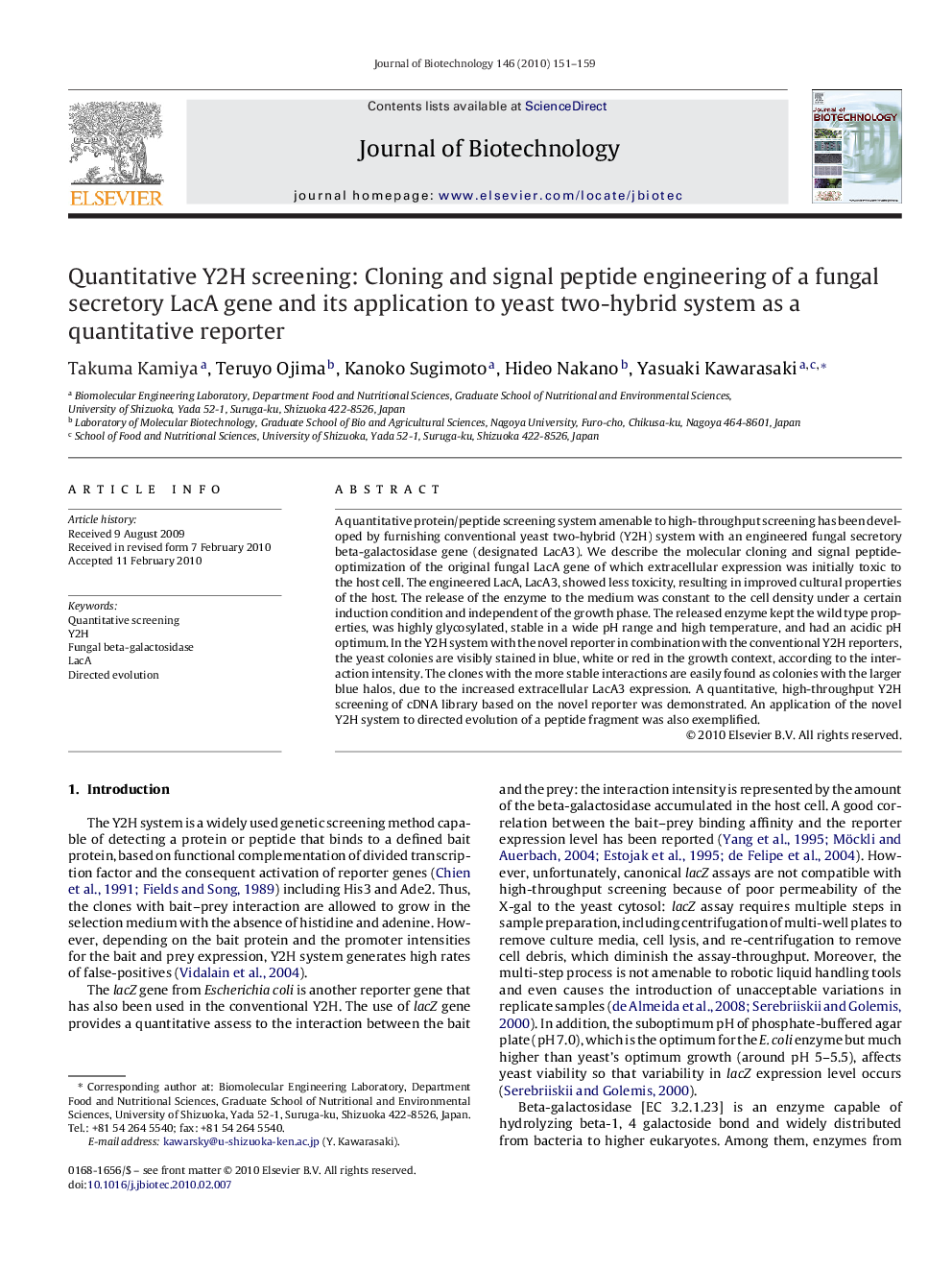| Article ID | Journal | Published Year | Pages | File Type |
|---|---|---|---|---|
| 24383 | Journal of Biotechnology | 2010 | 9 Pages |
A quantitative protein/peptide screening system amenable to high-throughput screening has been developed by furnishing conventional yeast two-hybrid (Y2H) system with an engineered fungal secretory beta-galactosidase gene (designated LacA3). We describe the molecular cloning and signal peptide-optimization of the original fungal LacA gene of which extracellular expression was initially toxic to the host cell. The engineered LacA, LacA3, showed less toxicity, resulting in improved cultural properties of the host. The release of the enzyme to the medium was constant to the cell density under a certain induction condition and independent of the growth phase. The released enzyme kept the wild type properties, was highly glycosylated, stable in a wide pH range and high temperature, and had an acidic pH optimum. In the Y2H system with the novel reporter in combination with the conventional Y2H reporters, the yeast colonies are visibly stained in blue, white or red in the growth context, according to the interaction intensity. The clones with the more stable interactions are easily found as colonies with the larger blue halos, due to the increased extracellular LacA3 expression. A quantitative, high-throughput Y2H screening of cDNA library based on the novel reporter was demonstrated. An application of the novel Y2H system to directed evolution of a peptide fragment was also exemplified.
